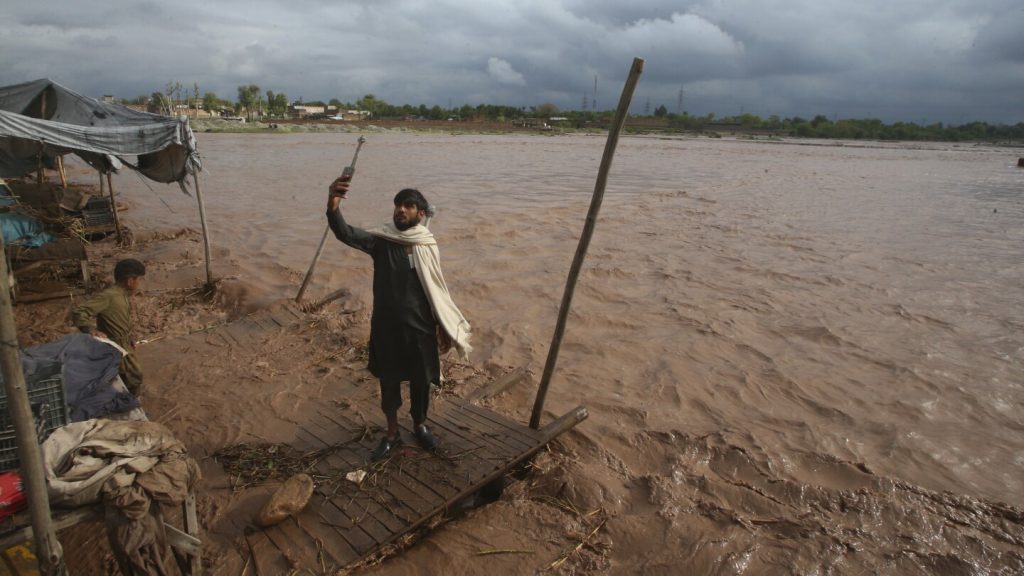At least 49 people have lost their lives in Pakistan due to lightning and heavy rains over the past three days, leading to a state of emergency being declared in the country’s southwest. The tragic incidents included farmers being struck by lightning while harvesting wheat, causing multiple deaths. The severe weather also resulted in the collapse of numerous houses in the northwest and eastern Punjab province. Officials reported that 21 people died in Punjab and another 21 in the northwestern Khyber Pakhtunkhwa province, with additional casualties in the capital, Islamabad, and southwestern Baluchistan province. The situation was exacerbated by flooding in cities such as Peshawar and Quetta.
In response to the crisis, Prime Minister Shehbaz Sharif announced relief aid for affected areas and highlighted the potential positive impact of the heavy rainfall on Pakistan’s water reservoirs. Environmental experts like Rafay Alam attributed the unusual April rainfall to climate change, noting its devastating effects in previous years. In 2022, Pakistan experienced significant flooding that resulted in widespread destruction and loss of life. The floods caused billions of dollars in damage and left a lasting impact on the country. The recent incidents serve as a stark reminder of the ongoing challenges posed by climate change and the need for proactive measures to mitigate its effects.
Meanwhile, neighboring Afghanistan also faced severe flooding from seasonal rains, leading to the deaths of 33 people and injuring dozens more over a three-day period. The Taliban’s spokesman for the State Ministry for Natural Disaster Management, Abdullah Janan Saiq, provided updates on the situation, highlighting the damage to houses, livestock, agricultural land, and infrastructure. Aid was provided to thousands of affected families, with flash floods reported in multiple provinces across the country. The combined impact of the extreme weather events in both Pakistan and Afghanistan underscores the urgency of addressing climate change and enhancing disaster preparedness efforts in the region.
The collaboration between authorities in both countries and the provision of relief aid to affected communities demonstrate a coordinated response to the unfolding crisis. As the region grapples with the aftermath of the devastating weather events, efforts to rebuild infrastructure, provide support to families, and enhance resilience against future disasters will be crucial. The shared challenges faced by Pakistan and Afghanistan underscore the interconnected nature of climate-related disasters and the importance of regional cooperation in addressing environmental threats. Moving forward, a focus on sustainable development and climate adaptation measures will be essential in safeguarding the lives and livelihoods of communities in the face of climate change impacts.
The involvement of various stakeholders, including government agencies, non-profit organizations, and international partners, will be critical in facilitating recovery and implementing long-term solutions to prevent similar tragedies in the future. By prioritizing disaster risk reduction, climate resilience, and sustainable development practices, both Pakistan and Afghanistan can build a more secure future for their citizens. The recent events serve as a stark reminder of the urgency of addressing climate change and investing in measures to protect vulnerable communities from the increasing frequency and intensity of extreme weather events. Through concerted efforts and collective action, the region can work towards a more sustainable and climate-resilient future for all.


